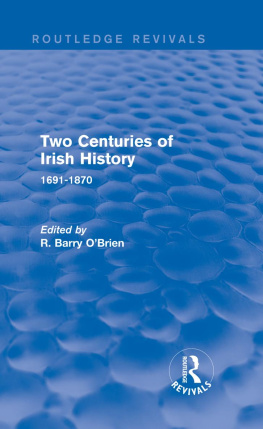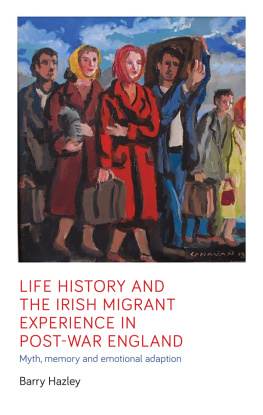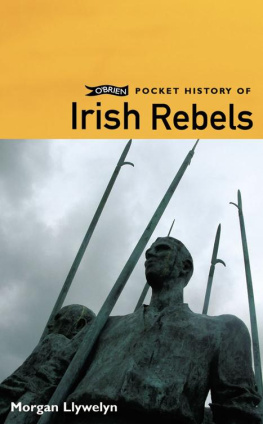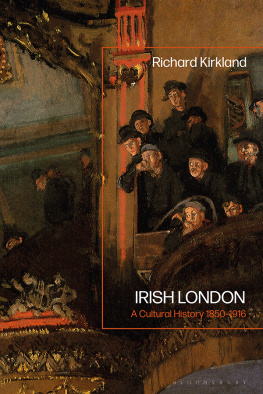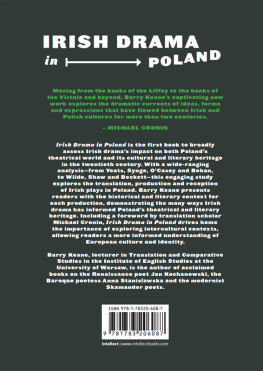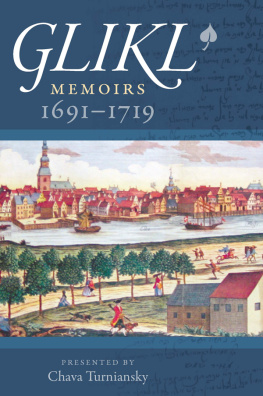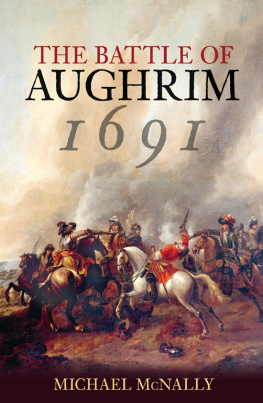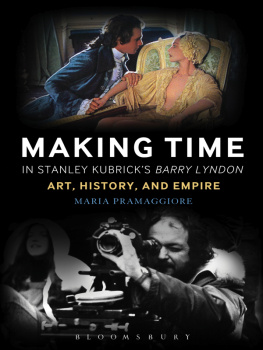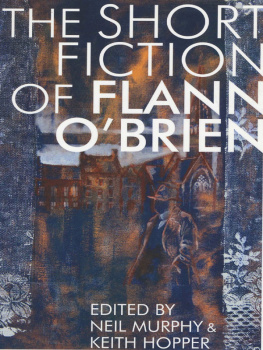Routledge Revivals
Two Centuries of Irish History 1691-1870
This collection of papers, first published in 1888, presents a history of Ireland as it unfolded from the Treaty of Limerick in 1691 until the Land Act of 1870 and the Home Rule Movement. Written at a time of great national interest in the Irish Problem, Two Centuries of Irish History tells the story of Irelands troubled relationship with successive British governments since the reign of William III, and charts the development of bitterness between opposing factions within Ireland itself. Whilst not lacking scholarly rigour, each contribution is lucidly written and accessible to the interested reader.
Two Centuries of Irish History
1691-1870
Edited by
R. Barry OBrien
Second edition published in 1907
by Kegan Paul, Trench, Trbner & Co. Ltd
This edition first published in 2014 by Routledge
2 Park Square, Milton Park, Abingdon, Oxon, OX14 4RN
and by Routledge
711 Third Avenue, New York, NY 10017
Routledge is an imprint of the Taylor & Francis Group, an informa business
1907 R. Barry OBrien
All rights reserved. No part of this book may be reprinted or reproduced or utilised in any form or by any electronic, mechanical, or other means, now known or hereafter invented, including photocopying and recording, or in any information storage or retrieval system, without permission in writing from the publishers.
Publishers Note
The publisher has gone to great lengths to ensure the quality of this reprint but points out that some imperfections in the original copies may be apparent.
Disclaimer
The publisher has made every effort to trace copyright holders and welcomes correspondence from those they have been unable to contact.
A Library of Congress record exists under LC control number: 12024510
ISBN 13: 978-0-415-74630-4 (hbk)
ISBN 13: 978-1-315-79699-4 (ebk)
TWO CENTURIES OF IRISH HISTORY
16911870
BEING A SERIES OF PAPERS BY
W. K. SULLIVAN, LL.D.; GEORGE SIGERSON, M.R.I.A.;
J. H. BRIDGES; LORD FITZMAURICE;
JAMES R. THURSFIELD;
AND
G. P. MACDONELL
WITH AN INTRODUCTION BY
THE RIGHT HON. JAMES BRYCE
EDITED BY
R. BARRY OBRIEN
SECOND EDITION
LONDON
KEGAN PAUL, TRENCH, TRBNER & CO. L TD
DRYDEN HOUSE, GERRARD STREET, W.
1907
The rights of translation and of reproduction are reserved
Printed by BALLANTYNE, HANSON & Co.
At the Ballantyne Press, Edinburgh
THE First Edition of this book appeared in 1888. Since then three of the Contributors have unhappily passed awayDr. W. K. Sullivan, Dr. Bridges, and Mr. G. P. MacDonell.
It may be stated that each writer is solely responsible for the correctness of the facts and soundness of the views contained in the part to which his name is prefixed.
The Editor is only responsible for the subject, the title, the plan, and (jointly with Mr. Bryce) for selecting the authors of the book.
R. BARRY OBRIEN.
March 1907.
CONTENTS
By W. K. SULLIVAN, LL.D., President of the Queens College, Cork.
By GEORGE SIGERSON, M.R.I.A., Fellow of the Royal University, Dublin.
By J. H. BRIDGES, late Fellow of Oriel College, Oxford.
By LORD FITZMAURICE and JAMES R. THURSFIELD, late Fellow of Jesus College, Oxford.
By G. P. MACDONELL, Barrister-at-Law.
THE annals of Ireland present to the historian a melancholy field, and one which few historians have cared to cultivate. Compared with those of France or Scotland, they are wanting in brilliant figures and dramatic situations. They seldom cross the great central movements of European history, for the island has had but slight and transient relations with any Continental country, and has, until recent times, affected the course of events even in England only during a few short periods. Accordingly Irish history has been little studied out of Ireland. The time seems now to have come when Englishmen and Scotchmen feel the need of knowing more than they have hitherto cared to know of that Irish past which has produced a present so profoundly significant to themselves. But the fact that this quickened interest in Irish history is largely a political interest, born of passing events, makes the task of the historian more than usually difficult. He can hardly fail to be suspected of writing in a spirit of partisanship rather than of scientific inquiry. His pages are likely to be searched less for the sake of obtaining trustworthy information and just views than of finding arguments which may be used in current controversy.
It is no disparagement to this book, which I have taken no small pains to bring before the world, to say not only that the chapters which follow contain no direct reference to the political controversies which now fill the national mind, but that the worth of history for the purposes of practical politics is apt to be, I will not say overrated, yet at least much misunderstood. History furnishes no precepts or recipes which can be directly applied to a political problem as a reported case can be applied by judges to a lawsuit brought before them, or even as a theorem of economic science can sometimes be applied to a question of legislation. Men talk of history repeating itself; but that is the one thing which history never does. Situations and conjunctions of phenomena arise which seem similar to others that have gone before them, but the circumstances are always so far different that it is never possible confidently to predict similar results, nor to feel sure that it is necessary either to avoid a remedy which failed, or to resort to one which succeeded on the previous occasion. The use of history to a statesman consists rather in this, that it gives him the data of the problem which lies before him. Statesmanship is a practical science, the foundation of which is a knowledge of the facts to be dealt with, and history helps us to a true comprehension of the facts by showing how they have come into being, and by revealing the causes that have determined their relative importance. What is it that an English statesman ought to know about Ireland? Her economic condition, and how law affects it, and how custom, and how custom modifies law: her religious condition, and what are the sources of the bitterness which religious feeling has taken; whether these sources are drying up, and whether the power of ecclesiastics rests on or is due mainly to their spiritual authority or other grounds also: her social structure, and the causes that have gone far to destroy those relations of respect on the one side, and sympathy and protection on the other, which, where they subsist between the richer and the humbler classes, give stability to the body politic; whether these causes of discord lie deep in the character of the people, or may be explained by a series of unfortunate events: the ideas and habits of the Irish, and the reason why their gifts, in some respects so brilliant, have effected little for the material prosperity and the contentment of the country: the sentiments of the people, or rather of each class of the people, towards England, as well as towards the law administered in Englands name; their sentiments towards their own leaders also, and what are the qualities which attract them, and what the faults they pardon. All these are matters on which hundreds of voices and pens have been daily professing to instruct us, each man giving the view which his partisanship, or his interest, or at best his personal experience suggests. But the only sure guide to a knowledge of them is history, which, critically studied and honestly weighed, supplies indisputable facts by whose help the allegations prompted by passion and prejudice may be tested and the underlying truth be discerned. There will still remain room for difference of opinion as to the remedies to be applied, yet that difference will be far less wide among those who have mastered the facts of history than it is among those who derive their views from current speeches and articles; and the former class will be more diffident and more charitable both in judging the Irish people and in condemning one anothers conclusions.


